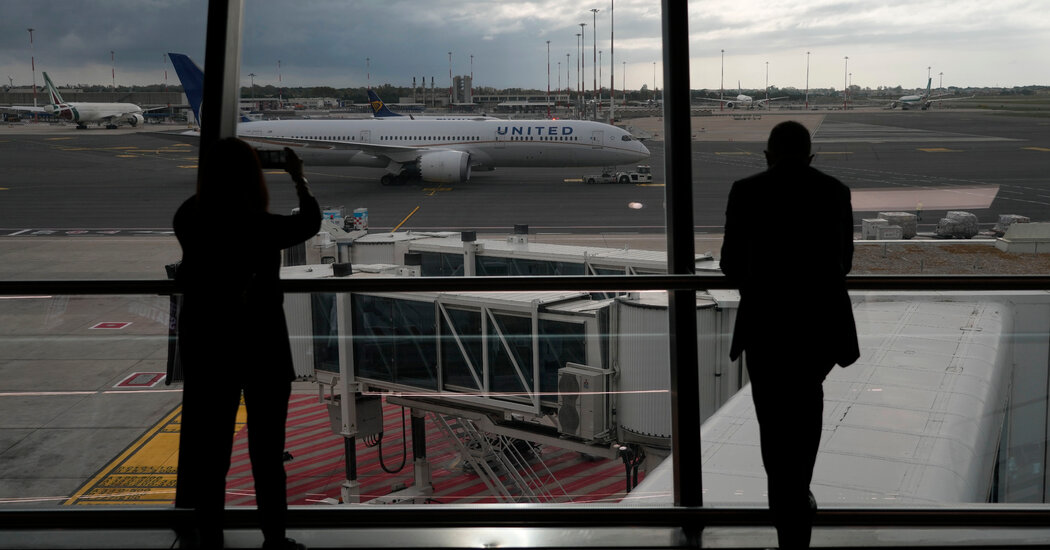
David Freedman, the president-elect of the American Society of Tropical Medicine and Hygiene, said that the type of mask one wears while traveling is particularly important. Dr. Freedman discourages people from wearing cloth or homemade masks; N95 or KN95 masks are preferable, he said.
It is difficult to assess how likely it is that a traveler will encounter an infected individual while flying to their destination. This is particularly important to consider when traveling with children too young to be vaccinated or to wear a mask. Domestic flights in the United States do not require testing or proof of vaccination. Some countries and airlines require both. Others don’t.
Creating a shorter window for testing — as the United States recently did for everyone flying into the country from abroad, regardless of nationality — makes sense, Dr. Freedman said. Testing three days before a flight can miss those who are incubating the virus and could be contagious and test positive by the time they board their plane. He said that a flight with a P.C.R. test requirement is also lower risk than a flight requiring an antigen test. But, he added, there is potentially more risk of transmission in airports than on planes, with their advanced air filtration systems. So much is out of even a meticulous planner’s control.
Part of the challenge that many people are struggling with is how to weigh the other variables — like the mental health benefits of celebrating Christmas with family, or the professional benefits that might come from interacting with co-workers face-to-face. It’s easier for governments to define “essential travel” than for individuals, said Ms. Niebrzydowski, the travel risk analyst.
Tatiana Torres, 37, who lives in Orange County, Calif., is among those struggling with this equation. Ms. Torres, a retail facilities coordinator for a company based in Canada, is supposed to travel there for a work holiday party next week. Because she started in January, she’s never been in the same room as her colleagues. Finally meeting them feels valuable, but she’s concerned that she might end up stuck in Canada, far from her sick cat.
“I’m just like, is it worth it for something so frivolous?” she said on Tuesday. She has yet to decide whether to cancel or not.
The fear of getting stuck is not unreasonable, said the travel risk experts. If a person tests positive, they will not be able to re-enter most countries, including the United States, until they test negative. Throughout the pandemic, many airlines have canceled flights at critical junctures, leaving people stranded for days — or even months.




